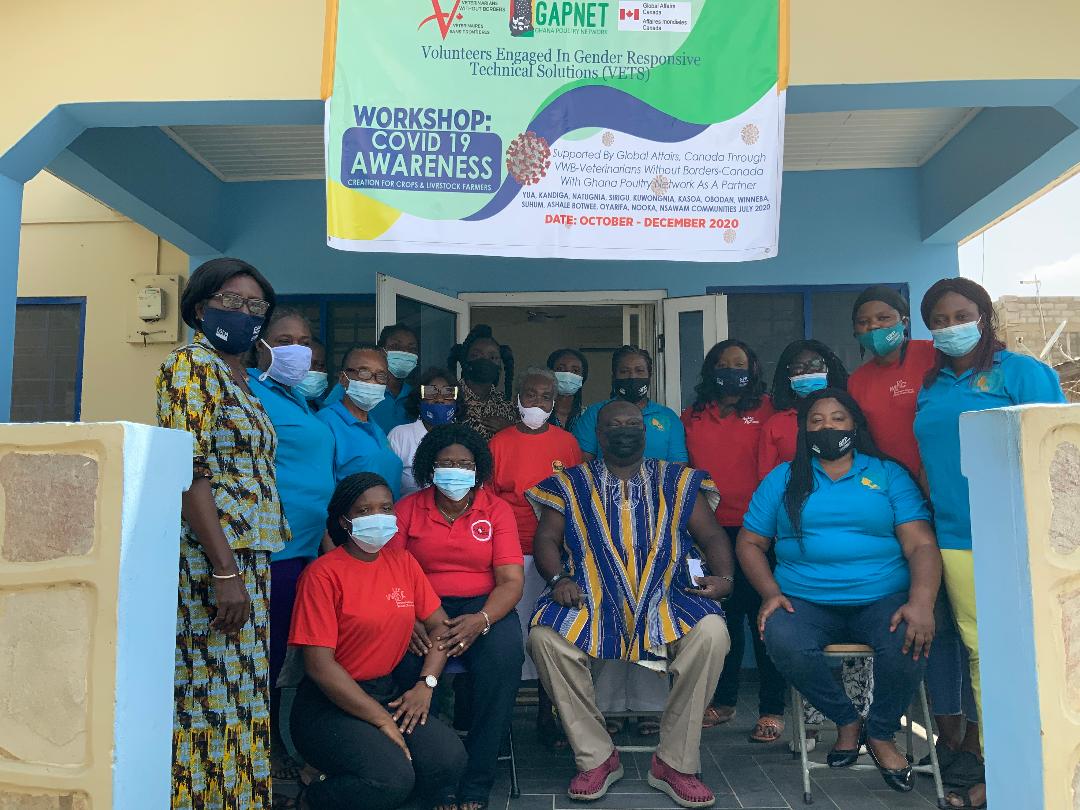The National President, apex body of the Women in Poultry Value Chain (WIPVac), Mrs Victoria Norgbey, has said the COVID-19 is not only a health crisis, but also becoming a food crisis as well.
She said because farmers were the main actors of the food value chain, when they were affected by COVID-19, it had food insecurity implications for the country.
“A case in point is during the lockdown in selected parts of the country, there was a glut of eggs supply and we, the farmers, could not sell and if we sold, then we sold the eggs half the price and we lost the money. This has affected poultry farmers now to produce enough eggs for the country,” she said this at a workshop on awareness creation for farmers organised by WIPVac in partnership with other stakeholders on November 11, 2020 in Accra.
The workshop also provided the platform for participants who were mainly women to be trained on how best to cushion their businesses from the impact of the coronavirus (COVID-19) pandemic.
Read: Accelerating the implementation of the ECOWAS Veterinary Pharmacy Protocol in Ghana
Telehealth
To help farmers to increase productivity, a project to engage 50 community animal health workers (CAHWs) to provide basic healthcare services in both livestock and poultry is to be introduced in February next year.
Dubbed, Telehealth or Community Animal Health Workers, the project seeks to augment activities of veterinary service persons in rural communities across the country by creating an animal health system which provides quality services to enhance productivity.
Under the Volunteers Engaged in Gender Responsive Technical Solutions (VETS), the project is being implemented in collaboration with the Veterinary Services Directorate of the Ministry of Food and Agriculture (MoFA).
Read: Eggglut: Farmers call for immediate intervention ...
Speaking at the workshop, a volunteer of the Veterinarians without Borders (VSF) Canada, Dr Geoffrey Akabua, said the Telehealth project was crucial to help ensure a stable animal health situation through the provision of quality animal health care services to enhance livestock and poultry production.
According to him, the project is expected to start in February next year under VETS initiative which is a global project co-funded by Global Affairs Canada (GAC) and VSF Canada.
“The major component within the first year of the VETS initiative is the Telehealth project also known as the Community Animal Health Workers.
“It is a way of health delivery in livestock where volunteers are identified, selected and trained in basic animal health care delivery such as diseases identification, wound treatment, ectoparasite and endoparasite control under the supervision of veterinary technicians and doctors,” he said.
He noted that the 50 CAHWs will be provided with the cellphones with software to reach veterinary doctors in the district capitals in case of disease outbreak at a particular location.
“Under the project, the country is divided into two, the northern zone will focus on livestock and the southern zone will also focus on poultry,” he said.
The success of the project in Ghana, he said, would provide the needed platform for the project to be scaled up and extended to other countries in Africa and Asia.
Economic and social well-being
Dr Akabua stated that the VETS project was established to improve the economic and social well-being of the poorest, most marginalised people, particularly women and girls, in six countries in Africa and Asia, through support to animal, human and environmental health (one health) initiatives.
He said the project would use the skills of Canadian volunteers to support smallholder farmers, primarily women, to reduce poverty by improving family income and nutrition principally through improved production of livestock and crops.
“By working with local women’s organisations and associations, as well as local partners that work with and support the identified women’s groups, VETS will also help women assume greater leadership and control over their livelihoods.
“The programme is built around the One Health (OH) concept which recognises that the health of people, animals and the natural environment are interconnected.
“It promotes the production of more and better food and increased incomes from livestock, all the while promoting land rehabilitation and conservation for sustainable development.
“In Ghana, the VETS project is being implemented in collaboration with the country partner organisation, GAPNET,” he added.
